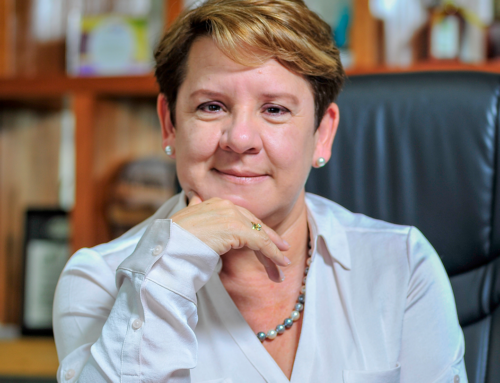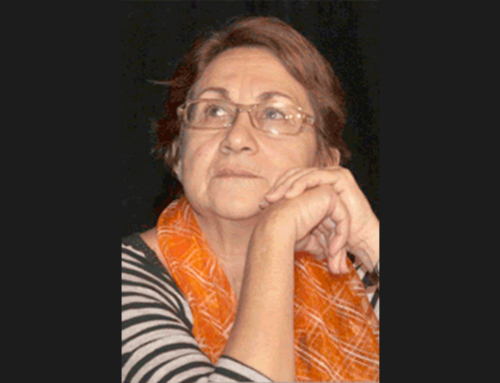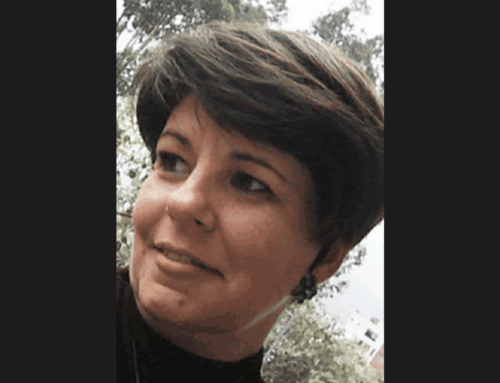América Latina Genera interviews Elizabeth A. Vazquez, CEO and Co-Founder, WEConnect International, for july’s monthly newsletter on «Women’s Economic Empowerment».
Elizabeth A. Vazquez is the President, CEO, and Co-Founder of WEConnect International, a corporate led non-profit that helps to empower women business owners to succeed in global markets. She is a world leader in women’s economic empowerment and global supplier diversity and inclusion. WEConnect International supports and promotes women-owned businesses based in over 100 countries, including local support and certification in 45 countries across the Americas, Asia, Europe, the Middle East and Africa. WEConnect International corporate members represent over US$1 trillion in annual purchasing power. Ms. Vazquez is the co-author of the book, “Buying for Impact: How to Buy from Women and Change Our World.” She sits on the Walmart Global Women’s Economic Empowerment Initiative’s International Advisory Council, the P&G Supplier Diversity Advisory Council, the Global Citizen Girls’ and Women’s Committee, is a Cartier Women’s Initiative Awards Jury Member for North America and sits on several Boards of Directors. She “rang the bell” at the NYSE in 2019 in support of women business owners and served as a member of the UN Secretary-General’s High-Level Panel on Women’s Economic Empowerment. She was born in Mexico and has a Master of Arts in Law and Diplomacy from the Fletcher School.
- Is it possible to dream of achieving a sustainable development by 2030 when gender inequality remains wide open?
We can achieve the Sustainable Development Goals or SDGs by 2030, but only if we make it a collective global priority. SDG champions must quickly win the hearts and minds of the people who have the power to change our systems to make them more inclusive and sustainable. Women do not yet have the economic power or the political power to unilaterally change the systems that were created primarily by men. According to the 2016 Global Gender Gap report by the World Economic Forum, only 59 percent of the economic participation gap has been closed. According to the UN, only 11 women are serving as Head of State and 10 are serving as Head of Government out of 195 countries in 2019. There is an urgent need for new and innovative collaborations at scale that lead to everyone having an equal opportunity to contribute to and benefit from achieving the SDGs.
2.Many occupations will arise, and others disappear thanks to the 4th Industrial Revolution. What are the challenges and the opportunities ahead?
To achieve the SDGs, we urgently need people and systems that are capable of adapting to changing realities. All of us regardless of age or background should be trained on how to learn, innovate, solve problems, be agile and be inclusive so that we can constantly adapt our skill sets to add value. We must embrace life-long learning and the mentoring of others. We must have the courage to modernize our governance models, business models, community models and family models to make them work better for everyone. And we must always put people and the planet at the center of everything we do. Women business owners in the WEConnect International network based in over 115 countries are consistent in how they run their businesses and their families with love and with purpose. These risk takers, job creators and agents of change analyze every day the potential impacts of their actions on people and the planet and they work hard to deliver high quality solutions that add value and do no harm. These are exactly the types of leaders and skill sets we need to achieve the SDGs so that we can all enjoy healthy, happy communities that are inclusive and sustainable.
3. What can be done to embrace an equal future? How can gender equality be advanced in the business world?
Organizations that embrace diversity and inclusion will be more adaptable and more successful than those that do not. A study on business and diversity by McKinsey & Company found that companies in the top quartile for gender diversity on their executive teams were 21 percent more likely to experience above-average profitability. Customers, employees, and investors want to work with organizations that attract and retain the best talent and leverage a broad range of opinions and experiences to solve problems. And it is no longer sufficient for a business to focus only on its internal hiring practices while ignoring the rest of the value chain. In fact, how an organization spends its money, actually says a lot about what it values. Today, women suppliers of products and services are invisible in global value chains. As a result, organizations miss out on the solutions women suppliers deliver and women have less money to spend on their employees, families and communities. Every organization and every person can contribute to the SDGs by spending their money with purpose.





